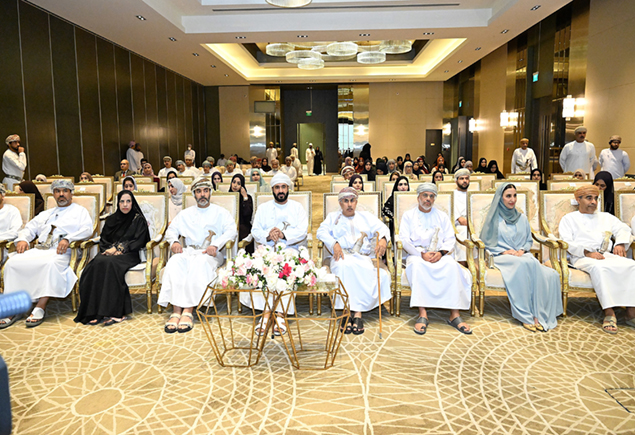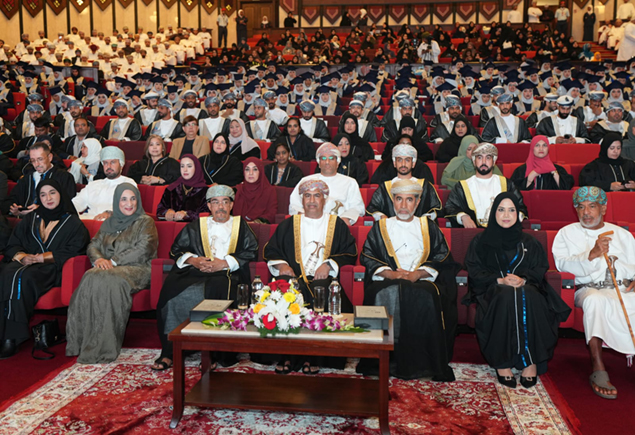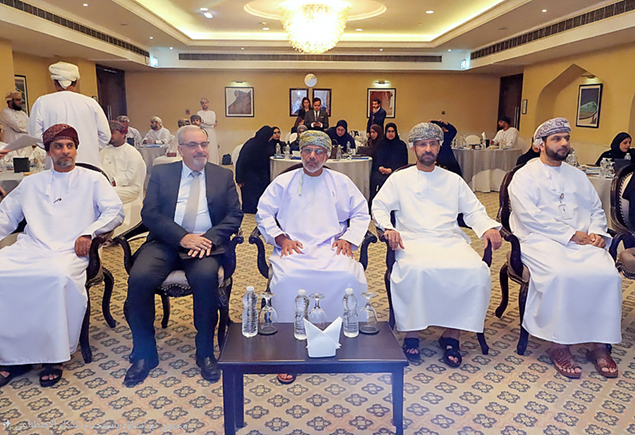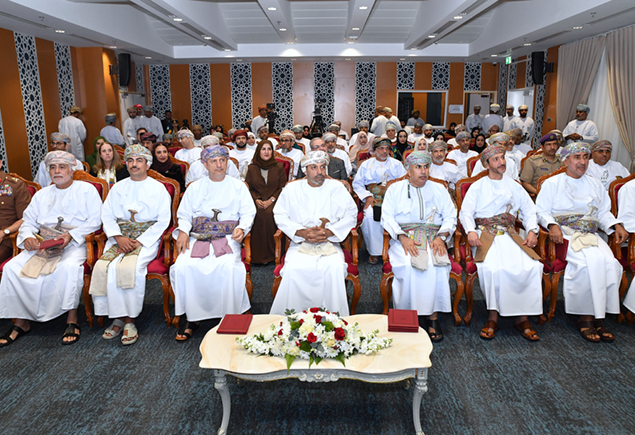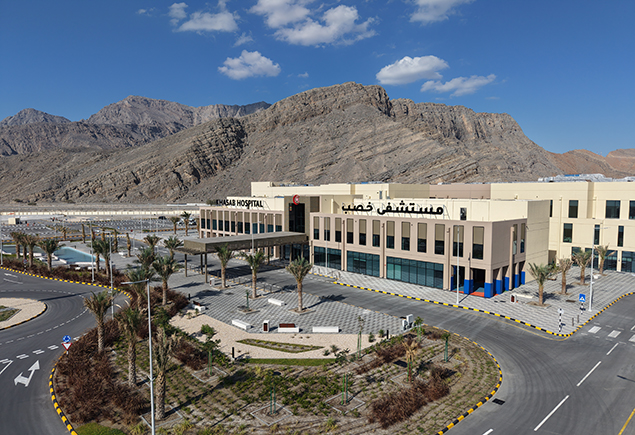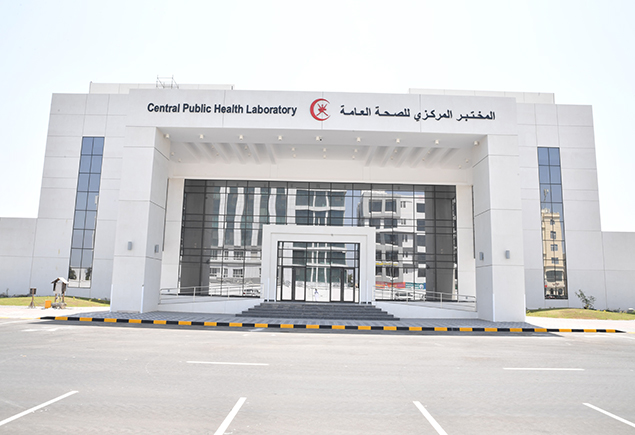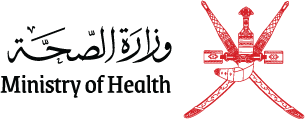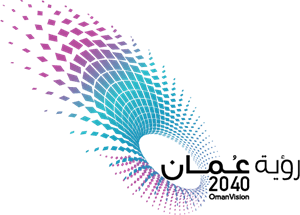As part of Oman’s commitment to enhancing public health and improving the quality of life for its citizens, as well as preventing genetic diseases and congenital defects, the Ministry of Health (MOH) celebrated today (Wednesday) the launch of the expanded newborn screening program and the enhancement of pre-marital medical examination at the Grand Millennium Hotel in Muscat.
The celebration was held under the patronage of H.E. Dr. Mohammed bin Said bin Khalfan Al-Mamari, Minister of Endowments and Religious Affairs, and in the presence of H.E. Dr. Hilal bin Ali bin Hilal Al-Sabti, Minister of Health.
The Undersecretaries of the Ministry of Health, the Undersecretary of the Ministry of Social Development, the MOH Directors-General, national figures, and specialized medical professionals attended the event.
In his speech during the launch of the two vital programs, H.E. Dr. Said bin Harib Al-Lamki, MOH Undersecretary for Health Affairs, stated that these two programs, pre-marital medical examination for genetic blood disorders and infectious diseases and newborn screening for metabolic blood disorders, are part of preventive health initiatives aimed at achieving the health priorities outlined in Oman Vision 2040, both locally and globally.
He added that these diseases pose significant social and economic burdens on individuals, communities, and health systems. According to the latest health surveys conducted by the Ministry of Health, the prevalence of these diseases is estimated at 9.5%. As a result, the establishment of preventive programs focused on early detection of these conditions has become essential to limit their spread. In line with the principle of universal health coverage—whether through expanding coverage in health institutions or creating community-focused programs—the Ministry of Health, in collaboration with all relevant sectors, developed a detailed national plan which was submitted to the Council of Ministers.
The MOH Undersecretary for Health Affairs pointed out that the Council of Ministers has endorsed the implementation of these important programs in three phases.
The first phase, which will take place during the years 2024-2025, will make pre-marital examination optional, along with efforts to raise community awareness about the importance of pre-marital medical examination. The second phase will involve the continuation of optional examination, expanding the scope by including screening for tenth-grade students at the beginning of the 2025-2026 academic year. The third phase, scheduled for 2026, will make pre-marital medical examination mandatory, with the issuance of a legislative framework that mandates the screening as a prerequisite for completing marriage procedures.
Dr. Jamila bint Taisir Al-Abri, Public Health Consultant and Director of the Women's and Children's Health Department, stated that a national media campaign was launched under the slogan “Start Right”. A comprehensive action plan has been developed to implement the campaign throughout 2025 as a preparatory phase for the mandatory examination in 2026.
Al-Abri added that the campaign will consist of three phases, each lasting four months. The first phase will focus on introducing the pre-marital medical examination program. The second phase will highlight the health impacts of genetic and infectious diseases. The third phase will emphasize the mandatory nature of pre-marital examination as a required condition for completing marriage procedures.
She stressed that the awareness campaign aims to target all segments of society, especially those preparing for marriage and parents. During the campaign, audio-visual awareness messages will be disseminated through various media outlets and social media platforms. The activities outlined in the plan will include direct community outreach, awareness in health institutions, media engagement, and the distribution and broadcasting of educational materials.
She also noted that preparations for the campaign included the development of various educational audio-visual materials. In addition, an introductory meeting was held at the beginning of the month, where all relevant sectors involved in the national campaign were invited. During the meeting, the campaign's objectives were introduced, and participants from the involved sectors received training to help implement the campaign effectively.
Dr. Riya bint Said Al-Khamyani, Specialist in Public Health and Head of the Pre-Marital Medical Examination Department, emphasized that pre-marital medical examination is a preventive health program classified by the World Health Organization as part of pre-conception care. The examination is defined as providing counseling and conducting laboratory tests for those preparing for marriage to ensure that the union is not associated with health risks that may affect either spouse, or both, or their future children. This is done by detecting whether either party, or both, carries or are affected by any conditions included in the examination that could be transmitted to their offspring or between the spouses, to build a healthy family.
Al-Khamyani indicated that the examination includes testing for genetic blood disorders (such as sickle cell anemia and thalassemia "B") and certain sexually transmitted infections such as Hepatitis B, Hepatitis C, and HIV/AIDS. The objectives of the pre-marital screening are to reduce the spread of these conditions, raise awareness about the concept of healthy marriage, alleviate pressure on health institutions and blood banks, and help prevent social and psychological issues for families with affected children. It also reduces the financial burden of treatment on both the family and the community.
Dr. Riya pointed out that pre-marital medical examination has been implemented in the Sultanate of Oman since 1999. This service is available on an optional basis at all government primary healthcare institutions, specifically health centers. Beneficiaries approach the healthcare facility and request the service, after which a doctor conducts an examination and takes a blood sample. A follow-up appointment is then scheduled within a short period for the medical counseling based on the test results.
Regarding the second program, which is newborn screening, Dr. Nadia bint Mousa Al-Hashimi, Senior Consultant in Genetic Chemical Diseases at the National Center for Genetic Health, explained that traditional clinical diagnosis may lead to delays in therapeutic intervention. In contrast, early screening provides a unique opportunity to detect conditions in their early stages, positively impacting children's health and quality of life. The program includes the addition of new tests to the current national preventive screening package, which currently includes tests for hypothyroidism, hearing, and clinical screening for newborns. With the expansion of the program, 62 genetic and metabolic diseases will be screened using 22 chemical markers. Among the most notable of these conditions are treatable metabolic disorders such as Phenylketonuria (PKU), Maple Syrup Urine Disease (MSUD), fatty acid oxidation disorders, and hormonal diseases such as congenital hypothyroidism and congenital adrenal hyperplasia.
Dr. Nadia Al-Hashimi added that the program will initially be rolled out in the Muscat Governorate to study and address challenges before expanding to other governorates in the Sultanate of Oman. This phased approach will enhance data accuracy and prepare medical and technical teams.
Dr. Al-Hashimi noted that the program relies on advanced technologies such as tandem mass spectrometry, allowing multiple diseases to be screened using a small blood sample taken from the newborn's heel on the second or third day after birth. National laboratories have been equipped with the latest equipment, and medical teams have been trained to ensure the accuracy and efficiency of diagnosis and follow-up.
